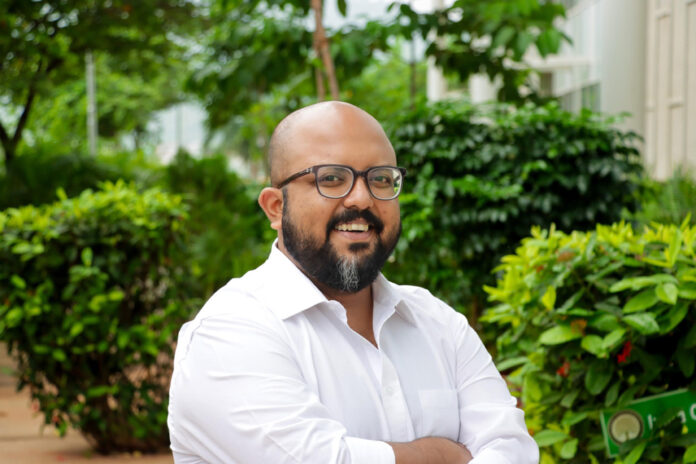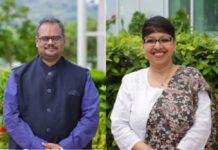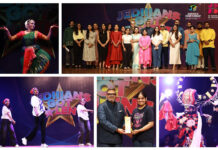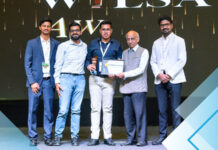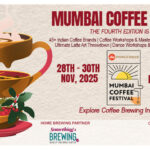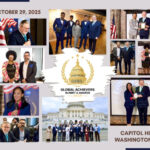By -Dr. Argha Basu
Assistant Professor,
Department of Literature and Languages,
Easwari School of Liberal Arts, SRM University-AP &
Executive Committee Member, Amaravati Literature Festival 2025
“Dr Weiss, at forty, knew that her life had been ruined by literature.” When I first encountered this line from Anita Brookner’s A Start in Life as a postgraduate student, I dismissed it as melodramatic pessimism. How could literature, that magnificent gateway to human experience, ruin anyone’s life? I was driven, ambitious, and convinced that literary study would only enrich and empower me. But years later, I understand what Brookner meant, though perhaps not in the way she intended.Studying literature did ruin something in me: it dismantled my comfortable certainties. It made me incapable of accepting simple binaries, right and wrong, good and evil, us and them. Literature opened me to variegated perspectives, each compelling in its own way, each demanding consideration. What emerged was a sense of constant flux, an inability to rest easy in absolute convictions. This “ruin” left me questioning, weighing, and reconsidering. However, the journey started on a pleasant note when, as a five-year-old, I received my first copy of Panchatantra (with vibrant, colourful illustrations) as a birthday gift. I never lost sight of the book for months, until I nearly memorised all its tales. I believe, for most of us, the exposure to literature has not been otherwise.
To understand the civic potential of literature, one must first acknowledge its primal function: entertainment. Long before it became an academic discipline, literature existed to delight, transport, and captivate audiences. From the ancient epics recited orally to the Victorian England serial novels, stories have always been man’s greatest amusement. In ancient India, professional bards called Sūtas and Kuśilavas moved from village to village, reciting parts of the Mahabharata and Ramayana in royal courts, temples, and public squares. These weren’t readings. They were long, day or even hour-long theatrical performances accompanied by music and dramatic enactments. The epics provided it all: heroism, love, political machinations, cosmic conflicts, and philosophical insights. They engaged individuals from all walks of life, much like our three-hour INOX treat or watching a show on OTT platforms. Oral narration similarly dominated the global cultures prior to the advent of writing systems. Homer’s epics safeguarded Greek oral conventions, and medieval troubadours amused European aristocracy with courtly romances. The invention of the printing press in the 1450s democratised this entertainment, making literature accessible beyond elite circles. The eighteenth and nineteenth centuries, often marked as the golden age of literature in England, functioned as mass entertainment. In Georgian and Victorian England, families gathered in parlours for nightly novel readings, a cherished domestic ritual. Prior to radio or TV, the parlor was a social stage upon which parents enacted tales for their kids. Charles Dickens rode this wave by issuing books in monthly parts, building cliffhangers that left families holding their breath for the next instalment. The trained reader, usually educated in elocution, employed tone, voice, and gesture to animate characters, making reading an exercise in performance, such as how our grandparents elegantly brought the characters from myths and epics into our worlds. These customs had several purposes: they kept families together through shared experiences of emotions, aided literacy among those learning to read, and enabled parents to monitor the “morally suspect” materials that children were reading. Though mass literacy and competing media like radio and television eventually diminished this practice, its essence survives in bedtime stories and the modern audiobook phenomenon.
Since the academic absorption of literature as a discipline to study, and its migration from the oeuvre of entertainment toone of functionality, researchers and academicians have left no stone unturned to identify literary texts within the spectrum of socio-cultural or socio-economic significance to add flesh to the empirical merit and need of their rigorous probing. For years, we have kept the study of literature within the thinly veiled abstract notions of consciousness-raising and awareness-building tools. However, I believe it’s time we address the concrete contributions literary texts nourish and offer. At the risk of sounding effectively high-browed, I consciously draw a line between literary works that impact generations and works that fleetingly please. Concurrently, I abstain from criticizing the need for the latter.Italo Calvino once famously contended that a classic is a book that has never completed what it has to say, and in this lies the power of literature as a viable force of civic action. A classic work can transcend geography and chronology, speaking to generations and places its author could not have conceived. Take George Orwell’s Animal Farm, published in 1945, as a satirical allegory of Stalinist Russia. Years on and thousands of miles away, the same work fanned political fire in West Bengal. In March 2008, the Bengali translation Poshu Khamar was banned hours before it was to be performed in the Hooghly district. Local government officials, acting after a complaint from a CPI(M) member, invoked election code breaches. But the actual concern was apparent: Orwell’s allegory of revolutionary principles prosecuted by power had become uncomfortably applicable to the ruling Left Front government, especially after the Singur and Nandigram agitations had revealed strains between the party and its traditional base. The ban had triggered spontaneous protests reminiscent of the 1970s, when the Congress government had smothered Utpal Dutt’s anti-establishment plays. The intelligentsia-state went on the streets, and Chief Minister Buddhadeb Bhattacharjee was forced to apologize publicly. The defiant “show must go on” of theatre director Arpita Ghosh resonated through decades of such battles. Here was a British novella set in Soviet Russia, becoming a lightning rod for democratic argument in modern India, illustrating how great writing will not be confined by borders or time.
The Poshu Khamar incident is hardly isolated. Globally, literature has functioned as a tool of civic engagement, challenging power and awakening conscience. Harriet Beecher Stowe’s Uncle Tom’s Cabingalvanised American abolitionist sentiment so powerfully that Abraham Lincoln allegedly greeted her as “the little woman who wrote the book that started this great war.” Aleksandr Solzhenitsyn’s The Gulag Archipelago exposed Soviet totalitarianism, contributing to the eventual collapse of the USSR. Chinua Achebe’s Things Fall Apart challenged colonial narratives about Africa, reshaping how the world conceivedthe impact of imperialism. In apartheid South Africa, Athol Fugard’s plays gave voice to the oppressed, while in Latin America, Pablo Neruda’s poetry became inseparable from political resistance. These works did more than entertain; they mobilized communities, shifted public opinions, and demanded justice.
This brings us back to Dr. Weiss and her ruined life. Perhaps what literature ruins is not our capacity for happiness but our capacity for complacency. In a world that constantly invites us to be “comfortably numb,”to accept easy narratives, to retreat into our echo chambers, to view others as fundamentally different from ourselves, literature performs a crucial act of destabilisation.We live in an age of polarization, where certainty has become a badge of honor and nuance a sign of weakness. Social media algorithms feed us content that confirms our biases, news channels cater to our predetermined worldviews, and political discourse rewards the loudest, most uncompromising voices. In this landscape, the ability to sit with ambiguity, to entertain contradictory perspectives, to recognisehumanity in those we disagree with, these become radical acts.This is the ruin literature offers: it makes us question, doubt, and reconsider. It forces us to inhabit minds vastly different from our own. Within India’s complex tapestry of languages, religions, castes, and regional identities, this capacity for imaginative empathy is not merely intellectual; it is essential for survival as a democracy. Literature ruins us for all the right reasons. It ruins our certainty, our prejudice, our comfortable insularity. It ruins our ability to dehumanise those who differ from us. And in a world desperately in need of empathy, dialogue, and genuine civic participation, perhaps we could all use a little more ruin in our todays for a better tomorrow.
Join Amaravati Literature Festival @ https://events.srmap.edu.in/event/amaravati-literature-festival/


